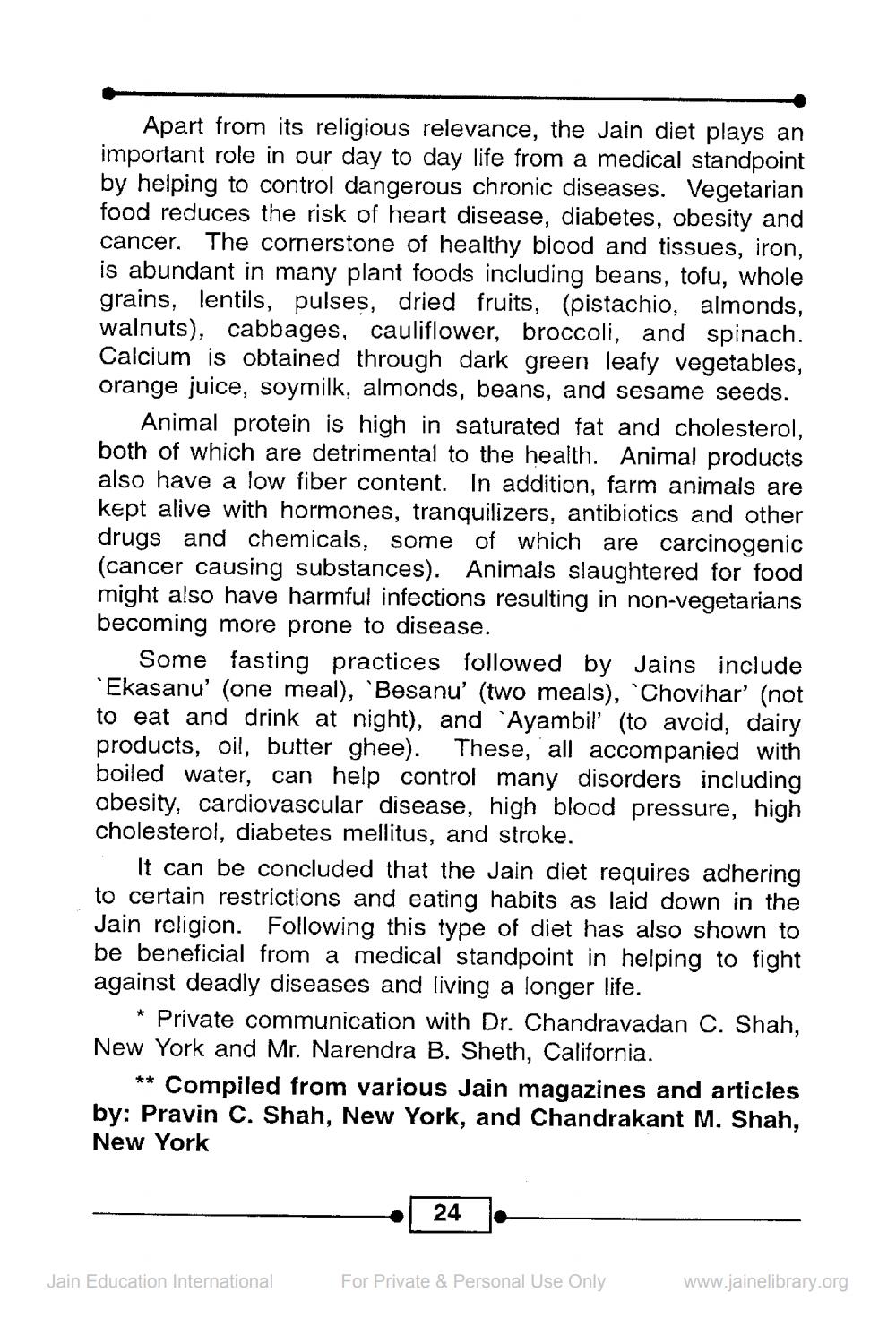________________
Apart from its religious relevance, the Jain diet plays an important role in our day to day life from a medical standpoint by helping to control dangerous chronic diseases. Vegetarian food reduces the risk of heart disease, diabetes, obesity and cancer. The cornerstone of healthy blood and tissues, iron, is abundant in many plant foods including beans, tofu, whole grains, lentils, pulses, dried fruits, (pistachio, almonds, walnuts), cabbages, cauliflower, broccoli, and spinach. Calcium is obtained through dark green leafy vegetables, orange juice, soymilk, almonds, beans, and sesame seeds.
Animal protein is high in saturated fat and cholesterol, both of which are detrimental to the health. Animal products also have a low fiber content. In addition, farm animals are kept alive with hormones, tranquilizers, antibiotics and other drugs and chemicals, some of which are carcinogenic (cancer causing substances). Animals slaughtered for food might also have harmful infections resulting in non-vegetarians becoming more prone to disease.
Some fasting practices followed by Jains include ‘Ekasanu' (one meal), 'Besanu' (two meals), Chovihar' (not to eat and drink at night), and 'Ayambil (to avoid, dairy products, oil, butter ghee). These, all accompanied with boiled water, can help control many disorders including obesity, cardiovascular disease, high blood pressure, high cholesterol, diabetes mellitus, and stroke.
It can be concluded that the Jain diet requires adhering to certain restrictions and eating habits as laid down in the Jain religion. Following this type of diet has also shown to be beneficial from a medical standpoint in helping to fight against deadly diseases and living a longer life.
* Private communication with Dr. Chandravadan C. Shah, New York and Mr. Narendra B. Sheth, California.
** Compiled from various Jain magazines and articles by: Pravin C. Shah, New York, and Chandrakant M. Shah, New York
24 l
Jain Education International
For Private & Personal Use Only
www.jainelibrary.org




